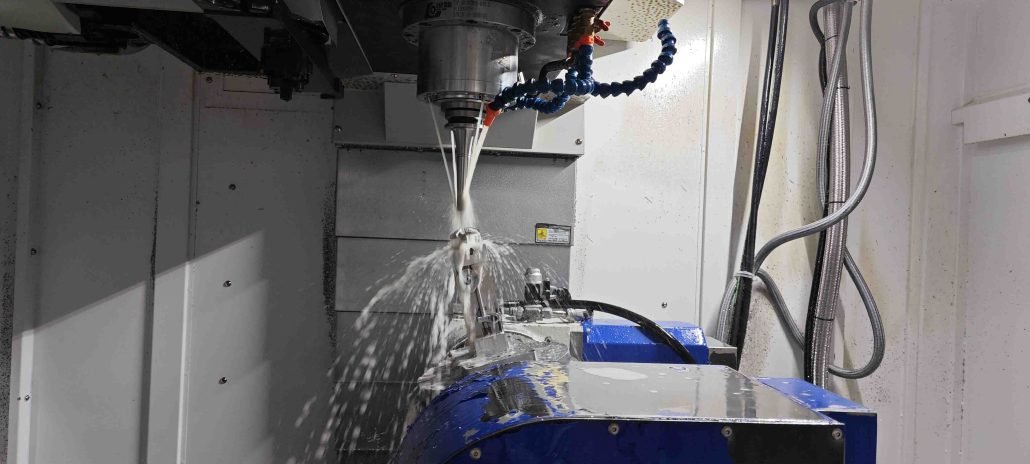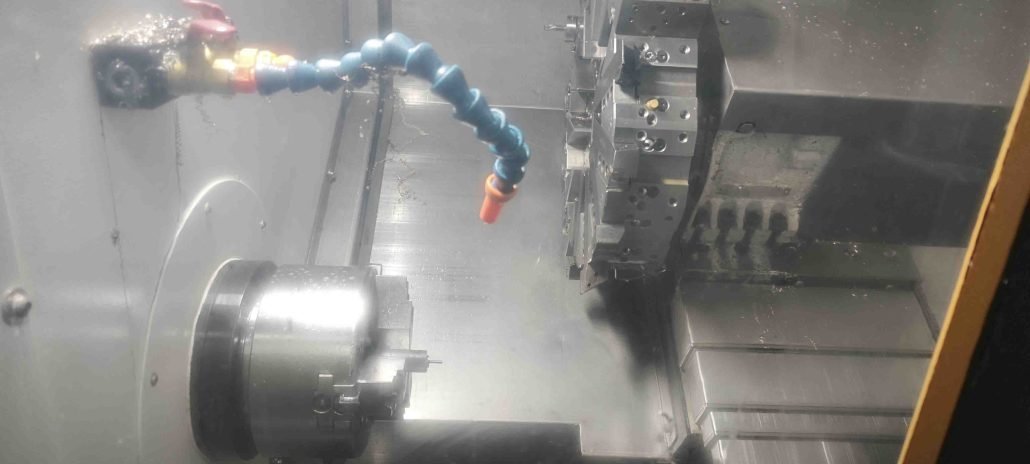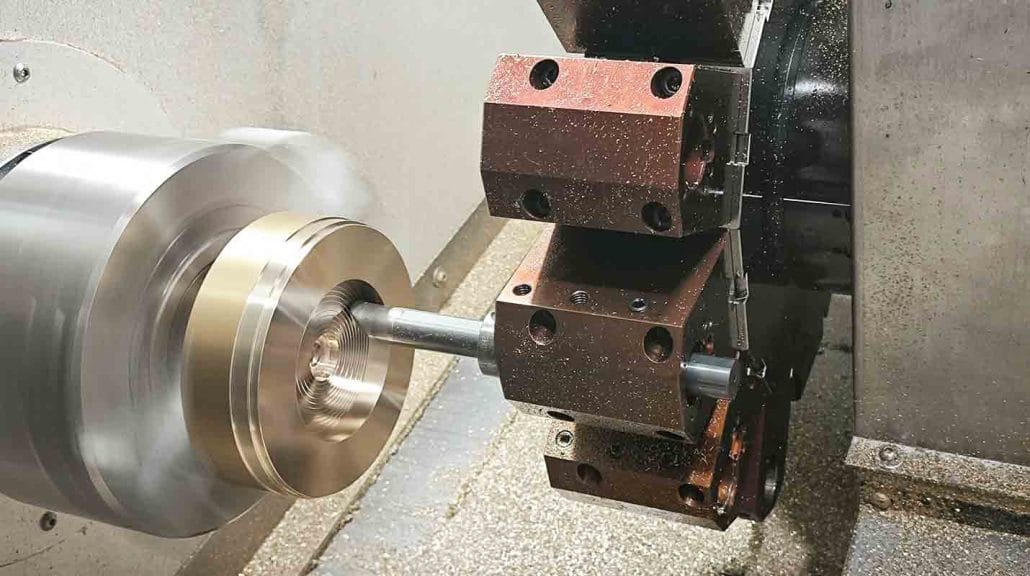If you are in search of an ultimate guide to CNC machining that combines information with persuasion, then you are in the right place. Our professional CNC machining manufacturer team has put together a comprehensive and personalized article that provides insights into the CNC machining process, its benefits and applications.
The Basics of CNC Machining
First off, let’s define CNC machining. The term refers to computer numerical control. It is a computer technology that automates manufacturing control. The CNC machining process involves programming a computer to control a device that cuts and shapes the material. The result is a highly accurate and precise finished product.
One of the benefits of the CNC machining process is its ability to produce large quantities of products with consistent precision. Additionally, it offers greater flexibility and cost-effectiveness compared to other forms of manufacturing.

CNC Machining Process Explained
CNC machining is an automated process that uses computer-controlled machine tools to produce precise parts from a variety of materials, including metal, plastic, wood, and more. The process involves a series of steps that are repeated to create a final product. The steps in the CNC machining process include:
Designing the Part – This is the first step in the process, where the customer sends to us a CAD drawing of the part he needs. At this stage, we review the drawing to ensure that it is manufacturable and can be produced according to the customer’s specifications.
Programming – Once we have reviewed and approved the design, we use specialized software to create a CNC program that will control the machines used to make the part. This program tells the machines where to cut, how deep to cut, and at what speed to work at and positioning every axis on the machine.
Material Preparation – After programming is complete, we prepare the material for machining. This involves selecting the right type of raw material, mounting it securely in the machine, and ensuring that the tools are working effectively.
Machining of the Parts – The next step involves cutting the part from the material using the computer-controlled machines. Here, we use precision CNC turning machining techniques to create parts with tight tolerances, high accuracy, and smooth surface finishes. Furthermore, we have multiaxis machines that can machine complex parts, and without breaking. For instance, our lathes have excellent accuracy in turning, boring, and threading, which results in identifying slight defects that other machine tools may have missed.
Quality Inspection – After the machining is done, the part is closely inspected to ensure it meets the customer’s requirements. We utilize some advanced checking processes and tools such as CMMs and optical comparators, which measure surface roughness and carry out other quality tests.
Finishing and Packaging –Lastly, the finished part is given a final finishes such as powder coating, electroplating, or anodization in preparation for assembly or shipping to the customer.
How Precision CNC Turning Machining Impacts the Quality of Parts Produced
As we have mentioned before, precision CNC turning machining plays a vital role in the quality of parts produced in the CNC machining process. By combining advanced computer programs, multi-axis machines, and high-precision turning tools, we can produce parts with precise dimensions within a thousandth of an inch. This ensures that the part will fit correctly and function as intended.
Moreover, our quality control processes also play a crucial role in ensuring the accuracy and reliability of the parts produced. By using the latest measuring tools and techniques, we can identify and correct any issues that may arise during production, such as tool wear or machine vibration.

Applications of CNC Machining
Here, we’ll take a deep dive into the many applications of CNC machining, exploring how this advanced technology can benefit your business.
Automotive Manufacturing
One of the most common applications of CNC machining is in the automotive industry. Parts such as engine blocks, transmission components, and brake system parts require precision and accuracy for safe and effective operation. CNC machining processes are capable of producing these parts to the exact specifications required, ensuring vehicles are reliable and safe to operate.
Aerospace Industry
The aerospace industry is another area where precision and accuracy are paramount. CNC machining is heavily utilized in the production of parts for aircraft engines, landing gear, and flight control systems. With high-quality, precision parts produced through CNC machining, aerospace manufacturers can ensure the safety of their products.
Medical Industry
In the medical industry, CNC machining plays a crucial role in the production of medical devices and prosthetics. Parts such as implants and surgical tools require precision and accuracy to ensure proper function and patient safety. CNC machining provides precisely manufactured parts with incredibly tight tolerances, resulting in high-quality medical devices.
Electronics Manufacturing
Electronic components such as circuit boards and computer parts require flawless precision for reliable operation. CNC machining allows for tight tolerances and high accuracy, making it an ideal process for producing these parts.
Defense and Military
In the defense and military industry, CNC machining is utilized in the production of parts for equipment such as weapons, vehicles, and sensors. These critical parts must meet strict specifications, and CNC machining allows for precise manufacturing to ensure reliable performance.
Benefits of CNC Machining
The benefits of CNC machining are numerous. Not only does it provide high precision and accuracy, but it also offers faster production times, increased efficiency, and greater flexibility in part design. With CNC machining, complex geometries and shapes can be produced with ease, allowing for greater innovation and creativity in part design.

Advantages of CNC Machining
CNC machining offers many advantages compared to other forms of manufacturing. Here are some of the main advantages:
Firstly, CNC machining allows for high precision. Because the machine is controlled by a computer, it can make incredibly precise cuts that would be impossible to achieve by hand.
Secondly, CNC machining is very efficient. Once the machine is set up and the design file is loaded, the machine can run 24/7, producing parts at a much faster rate than traditional manufacturing methods.
Finally, CNC machining is very versatile. It can be used to produce a wide range of parts, from simple brackets to complex aircraft components.
In conclusion, the CNC machining process is an incredibly important manufacturing technique. By using a computer to control the movement of a machine, parts can be manufactured with incredible precision and efficiency. If you’re in the market for precision CNC turning machining, be sure to choose a manufacturer with extensive experience in CNC machining to ensure that you get the best results.
Using CNC Machining for Precision Results
CNC machining is one of the most popular manufacturing methods for precision parts. The process allows for extremely tight tolerances and accurate cuts, resulting in parts that are consistently high-quality. Here are a few reasons why CNC machining is the preferred method for manufacturing precision parts:
- Increased Efficiency: CNC machining allows for high-speed cutting, reducing the time it takes to create parts.
- Consistent Quality: Because the process is computer-controlled, the quality of the parts is extremely consistent, from one part to the next.
- High Tolerances: CNC machines can produce parts with extremely tight tolerances, making them ideal for precision parts.
Precision CNC Turning Machining
CNC turning is a machining process that involves rotating a part while a cutting tool removes material from the part. CNC turning is ideal for creating round or cylindrical parts, such as shafts, bolts, and nuts. The process is computer-controlled, allowing for extremely consistent and precise cuts.
CNC machining is a process by which manufacturers use computer-controlled machines to create precise, high-quality parts. The process involves cutting and shaping raw materials using a variety of tools and techniques to create the desired shape and size. CNC machining is popular because it allows for extremely tight tolerances and accurate cuts, resulting in parts that are consistently high-quality. If you’re in need of precision parts, consider working with a reputable CNC machining manufacturer that can deliver on time and on budget.
Choosing a CNC Machining Manufacturer
When considering CNC machining for your business, it’s important to choose a reputable manufacturer with experience and expertise in producing high-quality parts. Look for a manufacturer that uses state-of-the-art equipment and can provide a wide range of machining capabilities to meet your specific needs.
At [Longsheng Technology, we are a CNC machining manufacturer with over 20 years of experience in the industry. Our precision CNC turning machining capabilities allow us to produce high-quality parts to the exact specifications required for your business.
Contact us today to learn more about how our CNC machining services can benefit your business and streamline your manufacturing processes.
Conclusion
In conclusion, the CNC machining process is a vital technology that has revolutionized the manufacturing industry. Our precision CNC turning machining team has provided a comprehensive and personalized guide on how the process works, its benefits and applications. We hope you find this article informative and useful in your manufacturing endeavors.

